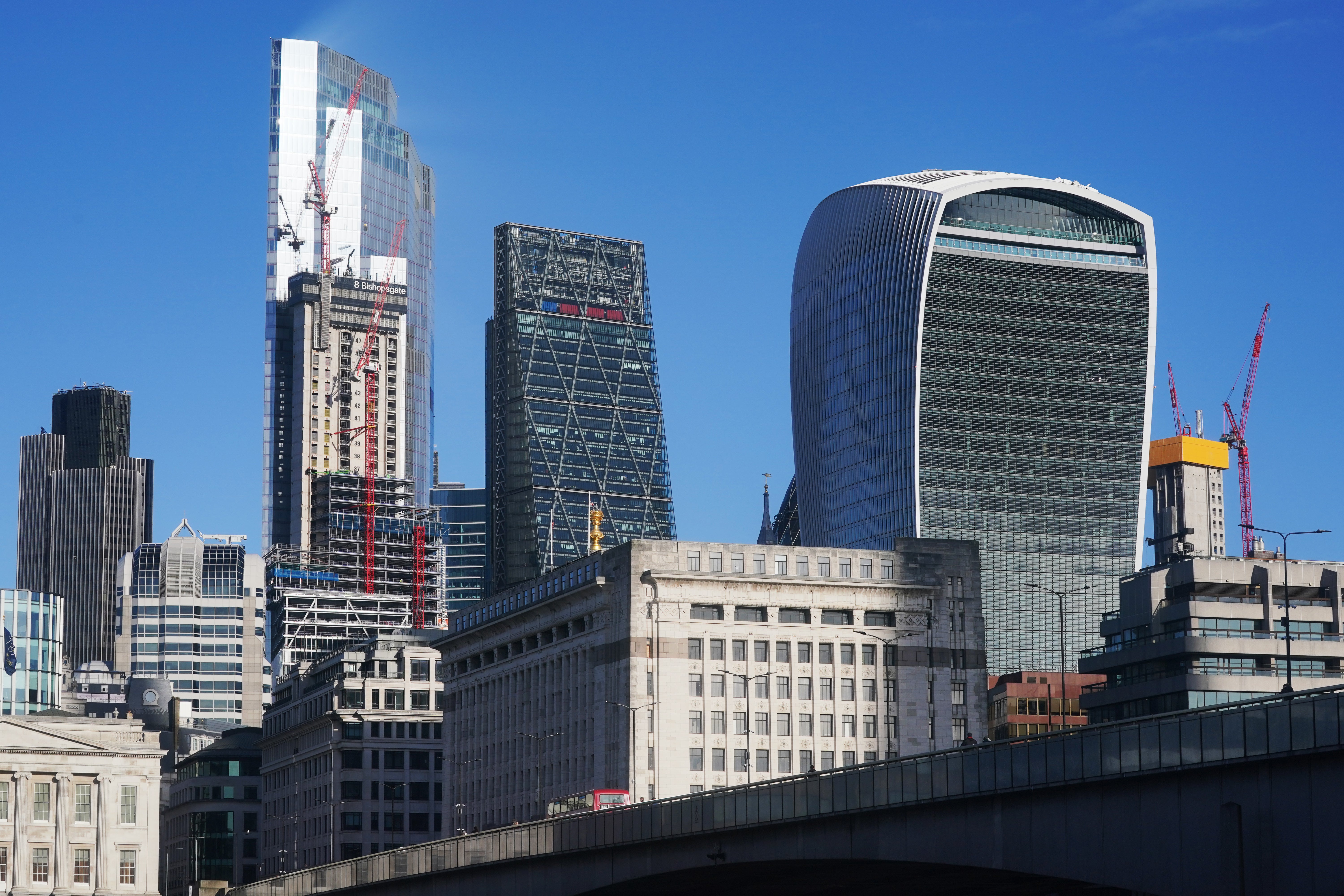AstraZeneca and mining giants help lift FTSE
The index closed up by 28.98 points, ending the day at 7,672.4, a rise of 0.4%.

Your support helps us to tell the story
From reproductive rights to climate change to Big Tech, The Independent is on the ground when the story is developing. Whether it's investigating the financials of Elon Musk's pro-Trump PAC or producing our latest documentary, 'The A Word', which shines a light on the American women fighting for reproductive rights, we know how important it is to parse out the facts from the messaging.
At such a critical moment in US history, we need reporters on the ground. Your donation allows us to keep sending journalists to speak to both sides of the story.
The Independent is trusted by Americans across the entire political spectrum. And unlike many other quality news outlets, we choose not to lock Americans out of our reporting and analysis with paywalls. We believe quality journalism should be available to everyone, paid for by those who can afford it.
Your support makes all the difference.Investors welcomed a set of new numbers from AstraZeneca on Thursday, and flocked to some of London’s biggest miners, sending the FTSE 100 to its third day of gains this week.
The index closed up by 28.98 points, ending the day at 7,672.4, a rise of 0.4%.
It came as drugmaker Astra reported a 41% hike in revenue, coming in more than one billion dollars higher than experts had forecast.
“As far as guidance is concerned AstraZeneca says it expects total revenues to increase by a high teen’s percentage, although revenue from its Covid-19 vaccine is expected to decline, although some of this loss should be offset by sales of its antibody treatment Evusheld,” said CMC Markets analyst Michael Hewson.
Astra is one of the biggest companies on the FTSE 100, so the 3.4% rise in its share price had a big impact on the index’s direction.
But it was also helped by the likes of Rio Tinto, Antofagasta and Polymetal.
“It’s been quite a choppy session for markets in Europe today with the FTSE 100 making another two-year high, however the afternoon session did see us undergo a sharp pullback after US CPI (consumer price index) surged to a new 40 year high of 7.5%, and US markets opened lower,” Mr Hewson said.
“The UK benchmark continues to look resilient despite the early weakness in the US, with the Dax also managing to hold up reasonably well, against a backdrop of increasing inflation risk.”
The German index closed up 0.2% while France’s Cac 40 was down 0.4%.
Shortly before the end of play in Europe the S&P 500 had lost 0.5%, while its New York neighbour the Dow Jones was down 0.4%.
Around the same time sterling rose 0.02% to 1.3621 dollars while it was flat against the euro at 1.1873.
In company news, Unilever shares took a 1.3% dent as bosses said cost inflation was starting to have an impact.
Bosses told shareholders it expects to be hit by 2 billion euros (£1.7 billion) of cost inflation over the first half of 2022 but there was some relief as the company said it has no plans for future deals after failing in its attempts to buy GSK’s consumer division.
Watches of Switzerland has posted a jump in sales by 27.9% to £348.1 million in the three months to the end of January, compared with the same period last year.
Shares closed up 1.9% as bosses hailed strong growth in the UK and US, despite tourists continuing to stay away from its flagship stores due to Covid.
The biggest risers on the FTSE 100 were Informa, up 42.6p to 615.8p, Antofagasta, up 54.5p to 1,344.5p, Airtel Africa, up 4.9p to 144p, AstraZeneca, up 286p to 8,650p, and Polymetal, up 36.5p to 336.6p.
The biggest fallers on the FTSE 100 were Evraz, down 13p to 431.7p, United Utilities, down 86p to 3,890p, Relx, down 44p to 2,267p, Intermediate Capital Group, down 34p to 1,857p, and Royal Mail, down 8p to 440.6p.